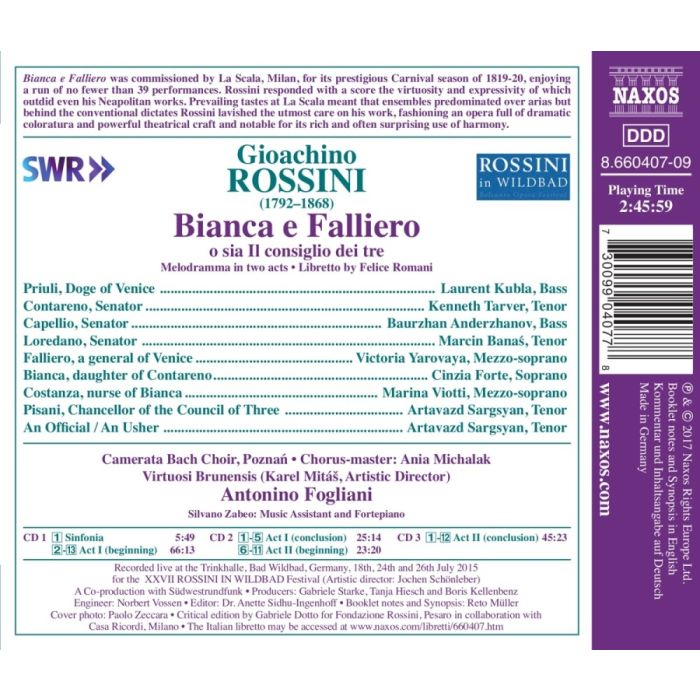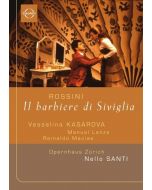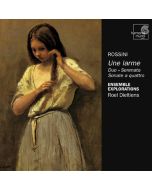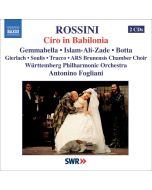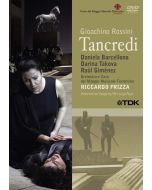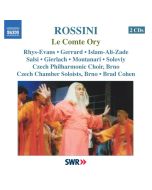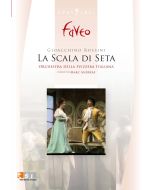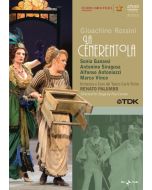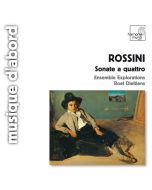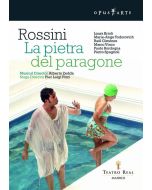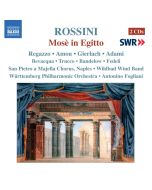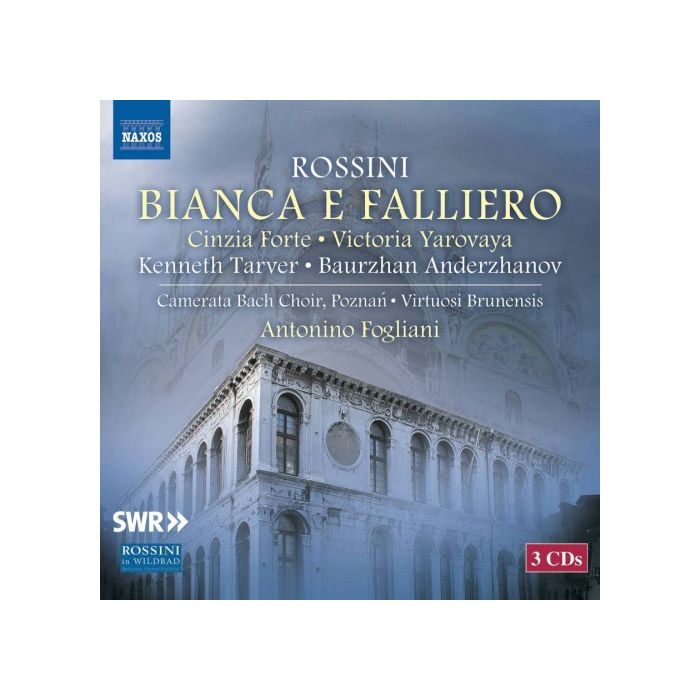
(Produkt nie został jeszcze oceniony)
kompozytor
Rossini, Gioachino
tytuł
Rossini: Bianca e Falliero
wykonawcy
Fogliani, Antonino, Poznań Camerata Bach Choir, soliści, Virtuosi Brunensis
nr katalogowy
8.660407-09
opis
Though Rossini was only twenty-eight, he was already entering his final period as a composer, Bianca e Falliero, enjoying thirty-nine performances at La Scala, Milan. That was the most extended run Rossini ever experienced at the theatre, which makes its fall into oblivion all the more bewildering—it was 120 years before it was heard outside of Italy—particularly as the plot was of the type that audiences enjoyed. To simplify the story, Bianca, daughter of Contareno, is promised by her father to Capellio, a union that would bring to an end a dispute between the two men, but she was in love with the victorious soldier, Falliero.
She vacillates under pressure from her father between the two men, but with the return of Falliero she realises she is his. A discovered illicit meeting between the two of them ends with Falliero escaping over a wall which, unfortunately, leads into the Spanish embassy who, at the time, were at odds with Venice. Being discovered there he is charged by the Senators of Venice as a traitor. More twists and turns in the plot and all ends happily with Contareno giving his blessing to her marriage to Falliero. That is a different conclusion to the unhappy ending in the original story on which Rossini’s libretto was based, but it pleased the Italian audience. As you will expect, the role of Bianca requires vocal acrobatics from the soprano, here sung with a totally committed brilliance by the much experienced Cinzia Forte, tenaciously hanging onto those high that come at the close of the first act.
Maybe a dark tenor voice is really required for the part of Contareno, but the American, Kenneth Tarver, as always, deals with Rossini’s extreme demands with total security, the opening act confrontation between father and daughter a particularly thrilling passage. The opera’s problem is the scoring of an alto in the part of Falliero, and without visual stage camouflage, the excellent mezzo, Victoria Yarovaya, is vocally all too feminine.
The bass, Bauyrzhan Andrezhanov, as Capellio, has a rather wide vibrato, but blends in the solo trios of the second act. A forceful chorus, the orchestra, drawn from the two major orchestras in Brno, responding well to the conducting of Antonio Fogliani. Maybe not a great opera, but certainly well one worth hearing. Good balance between singers and orchestra, but this South West German Radio engineering is one of those curious ones that crop-up every now and again, and is very volume conscious. So do play it at a very high setting or it sounds muddy. There is interrupting applause in this ‘live’ concert performance. • David Denton, David's Review Corner, September 2017
She vacillates under pressure from her father between the two men, but with the return of Falliero she realises she is his. A discovered illicit meeting between the two of them ends with Falliero escaping over a wall which, unfortunately, leads into the Spanish embassy who, at the time, were at odds with Venice. Being discovered there he is charged by the Senators of Venice as a traitor. More twists and turns in the plot and all ends happily with Contareno giving his blessing to her marriage to Falliero. That is a different conclusion to the unhappy ending in the original story on which Rossini’s libretto was based, but it pleased the Italian audience. As you will expect, the role of Bianca requires vocal acrobatics from the soprano, here sung with a totally committed brilliance by the much experienced Cinzia Forte, tenaciously hanging onto those high that come at the close of the first act.
Maybe a dark tenor voice is really required for the part of Contareno, but the American, Kenneth Tarver, as always, deals with Rossini’s extreme demands with total security, the opening act confrontation between father and daughter a particularly thrilling passage. The opera’s problem is the scoring of an alto in the part of Falliero, and without visual stage camouflage, the excellent mezzo, Victoria Yarovaya, is vocally all too feminine.
The bass, Bauyrzhan Andrezhanov, as Capellio, has a rather wide vibrato, but blends in the solo trios of the second act. A forceful chorus, the orchestra, drawn from the two major orchestras in Brno, responding well to the conducting of Antonio Fogliani. Maybe not a great opera, but certainly well one worth hearing. Good balance between singers and orchestra, but this South West German Radio engineering is one of those curious ones that crop-up every now and again, and is very volume conscious. So do play it at a very high setting or it sounds muddy. There is interrupting applause in this ‘live’ concert performance. • David Denton, David's Review Corner, September 2017
nośnik
CD x 3
wydawca
Naxos
data wydania
5.09.2017
EAN / kod kreskowy
0730099040778
119,00 zł
Produkt dostępny.
Wysyłka w ciągu 3 dni roboczych
Darmowa wysyłka dla zamówień powyżej 300 zł!
Darmowy kurier dla zamówień powyżej 500 zł!
sprawdź koszty wysyłki